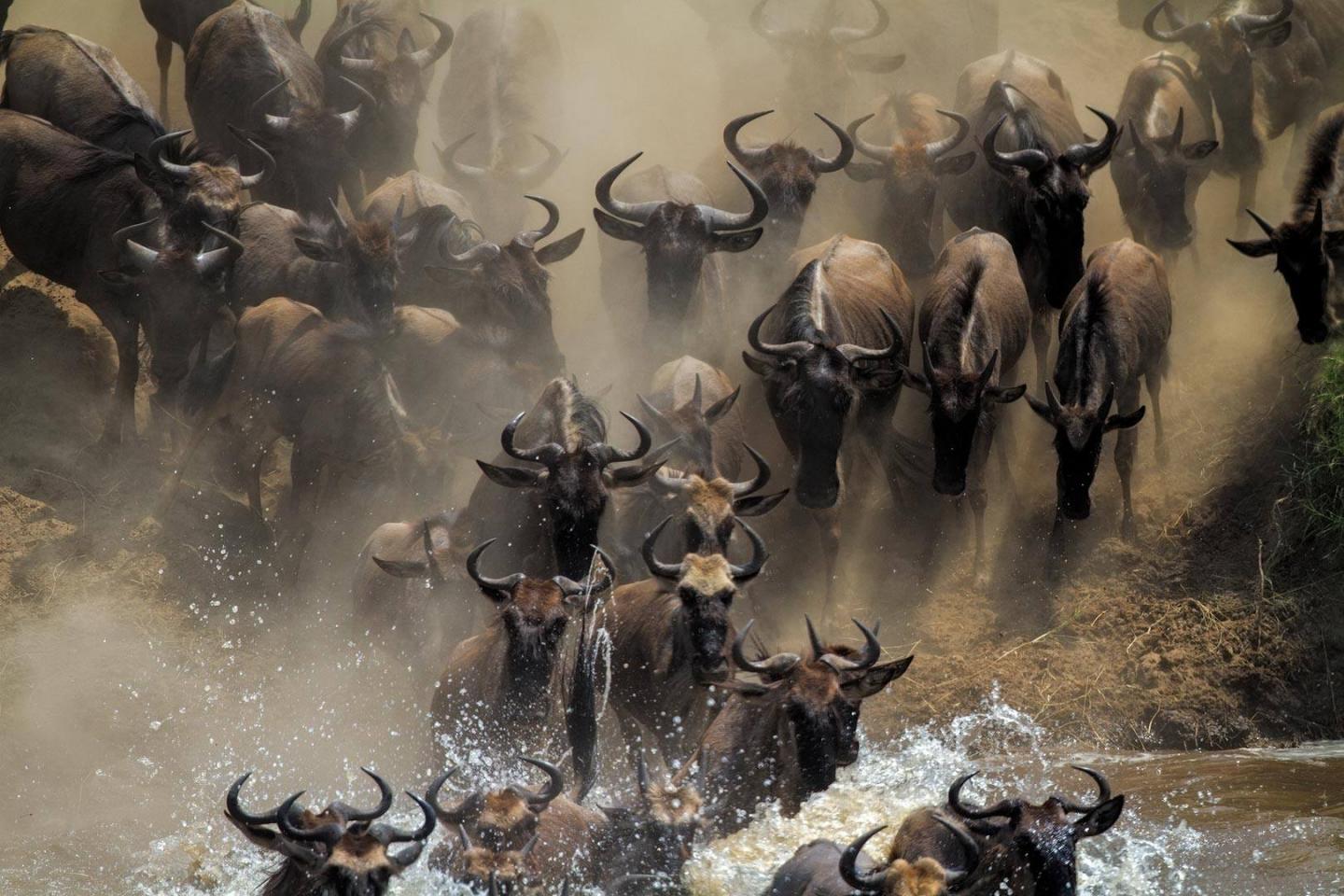
Credit: Mogens Trolle
The project gives valuable new insights on how genetic adjustments through evolution have rendered the ruminants one of the most successful groups of animals on the planet. The results have recently been published in three articles in the acknowledged scientific journal Science.
Approx. 20 million years ago, ruminants began to outmatch all other groups of large herbivores. Today ruminants count more than 200 species from all ecosystems and in all sizes, ranging from 2 to 1500 kg.
A collaborative team of Danish and Chinese researchers has generated huge amounts of genome-data from 44 ruminant species, some of which are rare and endangered. The study unravels some of the important enigmas in evolutionary biology and several of the results are of human medical interest.
New DNA-Techniques Reveals the Success of the Ruminants
– ‘Our research shows how ruminants have obtained a more efficient use of plant food e.g. by means of a sophisticated immune system that very precisely regulates the bacterial flora in the rumen. Furthermore, we found adjustments in the metabolism of the animals, rendering the animals capable of exploiting the bacteria’s ability to digest plant material. Finally, the ruminants have developed specialized teeth that also increase their food uptake. These are some of the reasons to the success of the ruminants’, says one of the study leaders, Assistant Professor, Rasmus Heller, Department of Biology, University of Copenhagen.
DNA is the blueprint of Life. Not only does it encode for all biological features, but it records the history of evolutionary adaptations as well.
– ‘With the cutting-edge genome sequencing technology, we can decode the genomes for hundreds of species, which was impossible before. By comparing the genomes of the different species, we are now able to answer controversial questions about their evolution. We can detect genes that are essential for the anatomical hallmarks of the ruminants, such as the multi-chambered stomach and headgear. These are found nowhere else in the animal kingdom’, says another of the project leaders, Professor Guojie Zhang from Department of Biology, University of Copenhagen.
The Research Provides Exciting Insights
Aside from being of fundamental scientific interest, the results of this project are also of applied relevance. One of the most important aspects of the study is that basic animal research can lead to new surprising discoveries. For example, many wild ruminants are resistant to important and costly cattle diseases such as foot and mouth disease and some might even have developed defense mechanisms against cancer.
For example – and rather surprisingly – the study indicates that the explosive growth of deer antlers (up to 2 cm per day) can be assigned to genes that are involved in a different kind of explosive cell growth, namely cancer. Meanwhile, deer have evolved other gene variants that contribute to keep the cell division in check, preventing it from going out of control and causing damage as seen with cancer. Apparently, deer are able to employ a controlled type of cancer-like cell growth to renew their impressive antlers each year.
-‘I am convinced that our data and results will contribute to finding genes of important relevance in livestock production. We have generated new insights to the basis of e.g. bone growth, regenerative biology, and physiological adaptations to climate and environment. These discoveries may prove to be instrumental in our search of treatments of human diseases in the future. At the same time, we have obtained much more knowledge about the development of this important group of animals which has mystified researchers for years’, Rasmus Heller says.
The study is one of the most extensive, coherent genome-projects ever made on animals. The three articles in Science comprise the first phase of results from the project and there are more to come.
###
Media Contact
Rasmus Heller
[email protected]
Original Source
https:/
Related Journal Article
http://dx.




